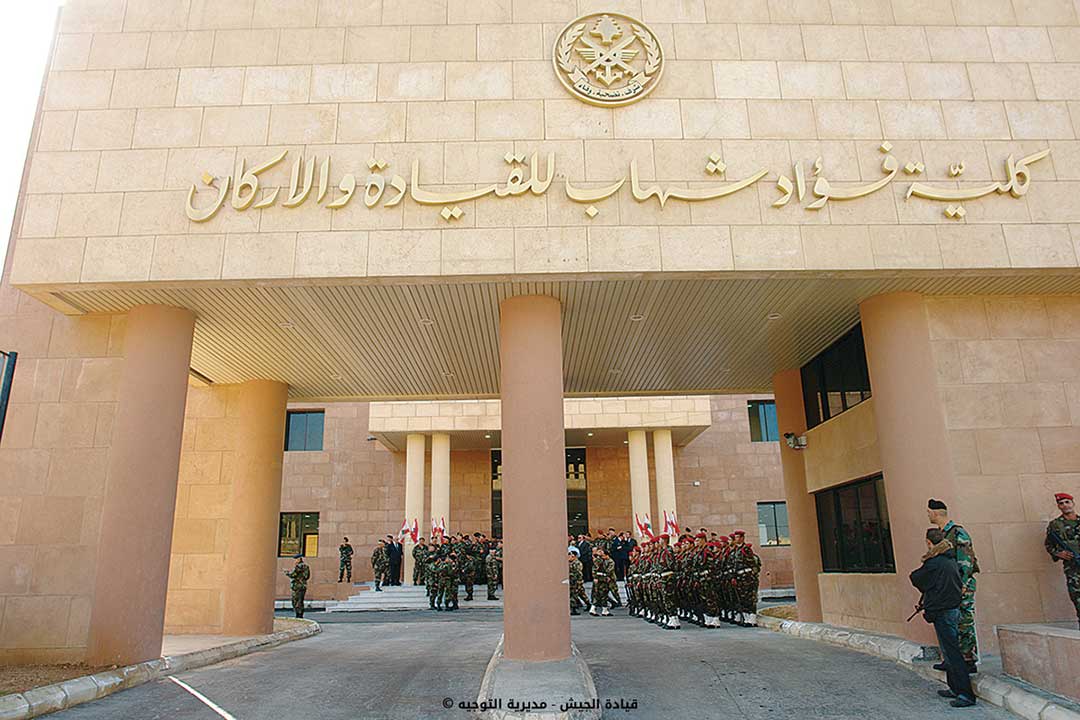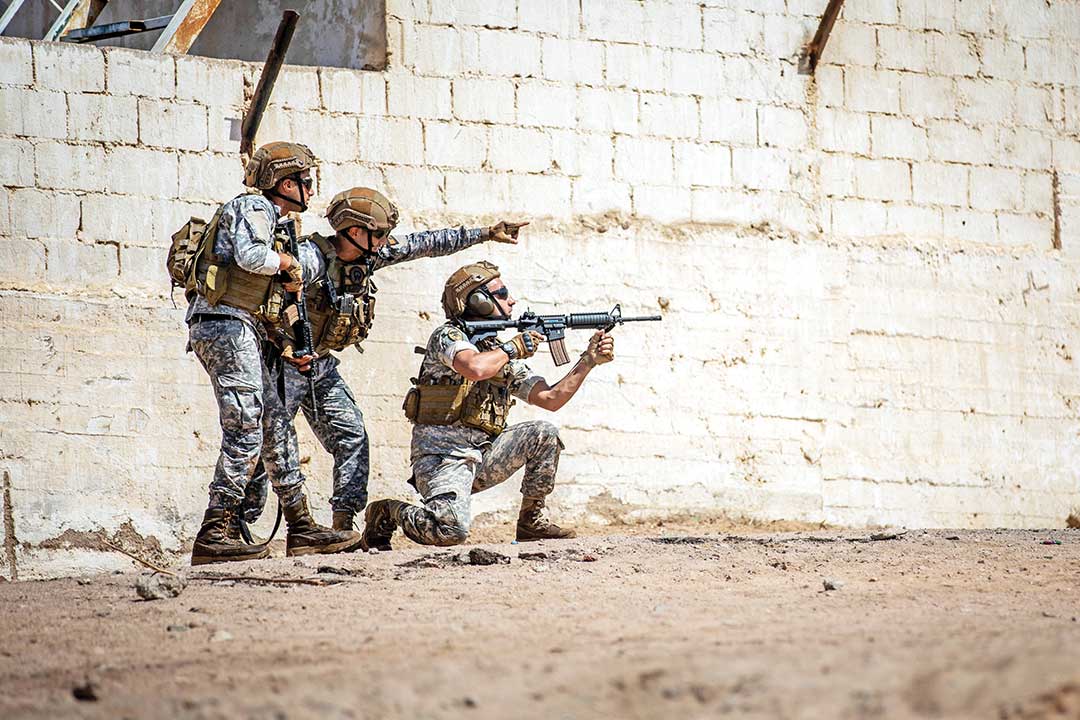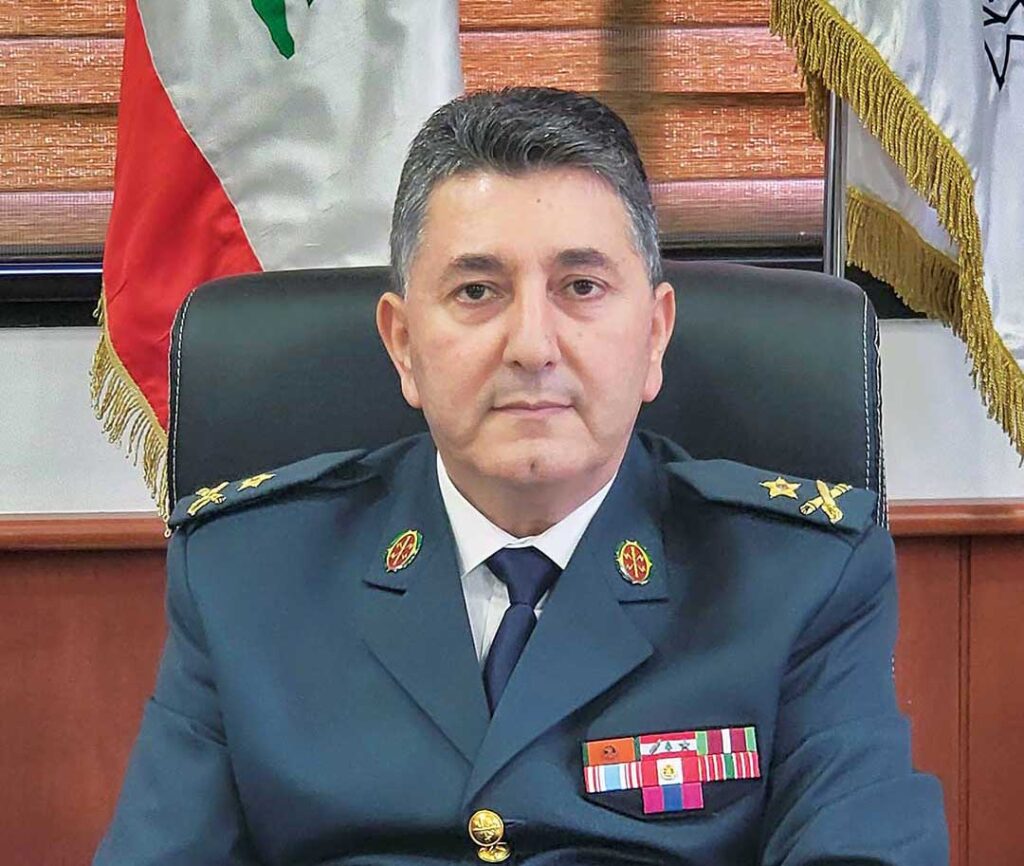UNIPATH STAFF
Brig. Gen. Hassan Jouni, until recently the commander of Lebanon’s Fouad Chehab Command and Staff College, is characterized by a calmness and humility that won respect from students and professors.
He likely acquired such commendable qualities from the many experiences he accumulated serving in the Lebanese Armed Forces and from his favorite hobby, chess, in which he fought many battles on the board before winning the title of Army chess champion.
After serving many years as head of the command college, Brig. Gen. Hassan was promoted in 2023 to deputy chief of staff of operations in the Lebanese Armed Forces. His career is a tribute to his resilience. He joined the army at a critical time when sectarianism and armed factions worked to undermine the state.
“I enrolled in the war college in 1984 at the height of the civil war in Lebanon, when a culture of sectarian and ideological parties and militias existed across the board, but I opted to choose legitimacy, the state and the law because I believe in them as the fundamental values of national life,” he said. “So I found myself knocking on the broad door of the homeland via the gates of the war college to join the army of honor, sacrifice and fidelity.”
These trying times shaped the young Lt. Hassan after he graduated from the war college.

He and his brother officers’ role was to impose state authority in an environment ruled by militias and foreign agendas intent on ending the state. The courage and patriotism of these young officers won out over the brutality of murderers and the agendas of militias so that the flag of Lebanon would rise from the rubble and the rule of law and peace would prevail.
“My first taste of combat was only two months after graduation, against organized militants,” he said. “The fighting, which I found myself in the middle of, was very fierce and I did not yet have practical experience, I was only about 21 years old. This battle introduced me very early on to the nature of my work as an army officer and to my true calling. It put me before an enormous challenge and responsibility that made me work hard to develop the necessary combat skills.”
He fought many battles and gained field experience throughout his 39 years of military life. He rose through various positions in the army, honing his skills in the fields of training, security and intelligence. He eventually discovered his calling at the staff college, where he forged his experiences into tactical and strategic lessons that would benefit an institution dubbed the “commanders’ factory.” Before becoming college commander in 2019, he served as a full-time professor for more than six years.
A well-educated and trained officer corps is the cornerstone of a cohesive force capable of executing difficult missions, Brig. Gen. Hassan said. Gaining the trust and respect of Soldiers is more effective than wielding authority to compel obedience.
“The intellectual dimension of leadership and its development and improvement across various fields enables a leader to exercise intellectual sovereignty over his subordinates before resorting to regulations and laws that oblige them to obey him,” he said. “In light of the evolution of the human psyche, which has become more liberal, modern leadership now requires persuasion more than force. This is where the motivation lies because a convinced subordinate is motivated whereas the unconvinced must be driven.”

The most important characteristic of an outstanding modern leader is the ability to think critically and flexibly to understand people, circumstances and attitudes from a variety of angles, the general said. A real leader is one who encourages initiative in his subordinates when circumstances change on the ground.
His affection for chess has sharpened his skill in strategic planning as a military commander. It cultivated patience and sound judgment and improved his ability to understand enemy intentions.
“Chess has too many dimensions and too much depth to be just a game. It is a field of intense intellectual struggle between two players in which a fierce battle breaks out where no blood is spilled and where the only weapon is one’s ability to think,” Brig Gen Hassan said.
“The most important thing in chess is to study and analyze options, make the most appropriate decision, determine the best move and bear the consequences. This is one of the most important jobs of any leader. Herein lies the relationship between chess and the military commander.”
On a personal level, the general won the Army Chess Championship and remains head of the army chess team. Participating in Lebanese and global championships earned him international ranking.
In developing a style of military leadership, Brig. Gen. Hassan draws from historical figures.
“I have always admired wise figures who looked deeply at the philosophy of war and military operations and who gave them powerful moral and psychological dimensions. Perhaps the most important of these figures is the Prussian military and strategic theorist, Gen. Karl von Clausewitz, who excelled at studying and identifying the relationship between war, politics and society,” he said.
He draws from military history and culture to advise young officers who will bear responsibility for the security of the homeland. His first pillar of military leadership is excellence in pursuit of military and non-military knowledge. But remembering the difficult times of his early military career — when militias, explosions and street battles reigned — Brig. Gen. Hassan believes students must cultivate other qualities to prevent those dark days from ever returning.
“I always tell the officers of Fouad Chehab Command and Staff College to maintain three basic values in everything they do, whether professionally or personally. They are humanity, conscience and patriotism.”

